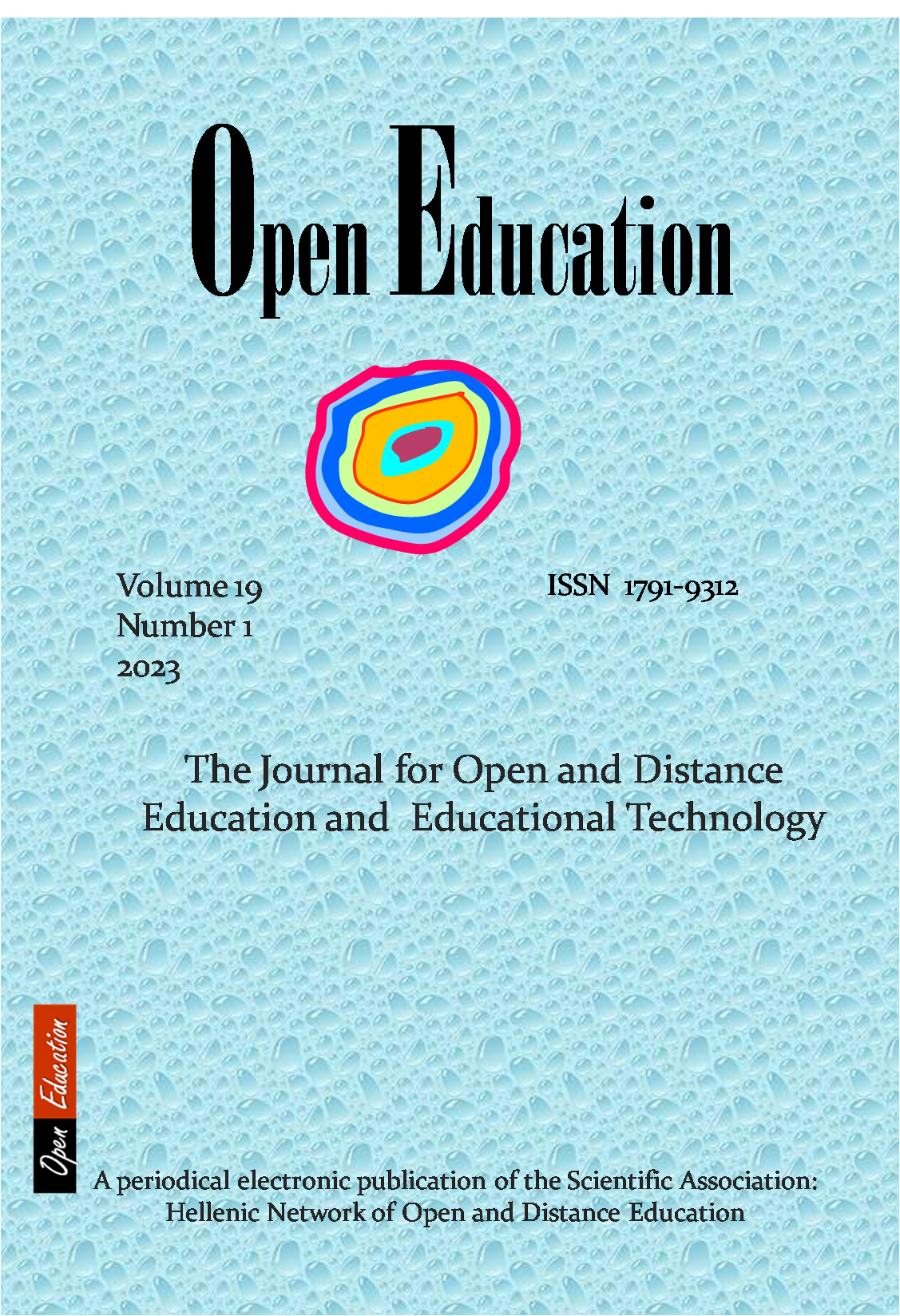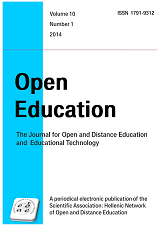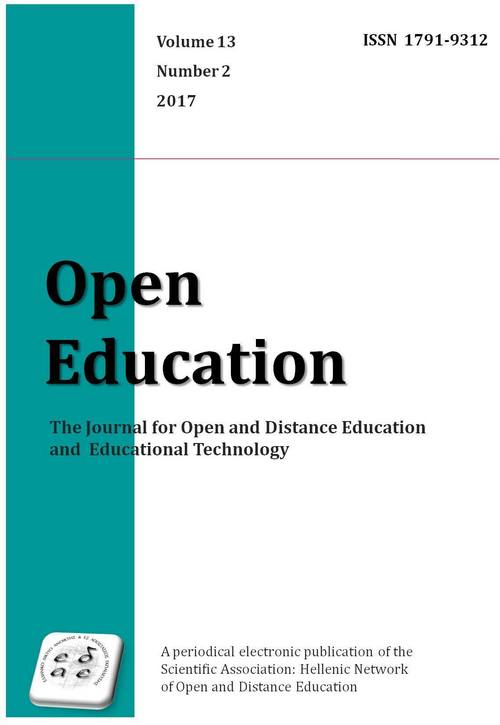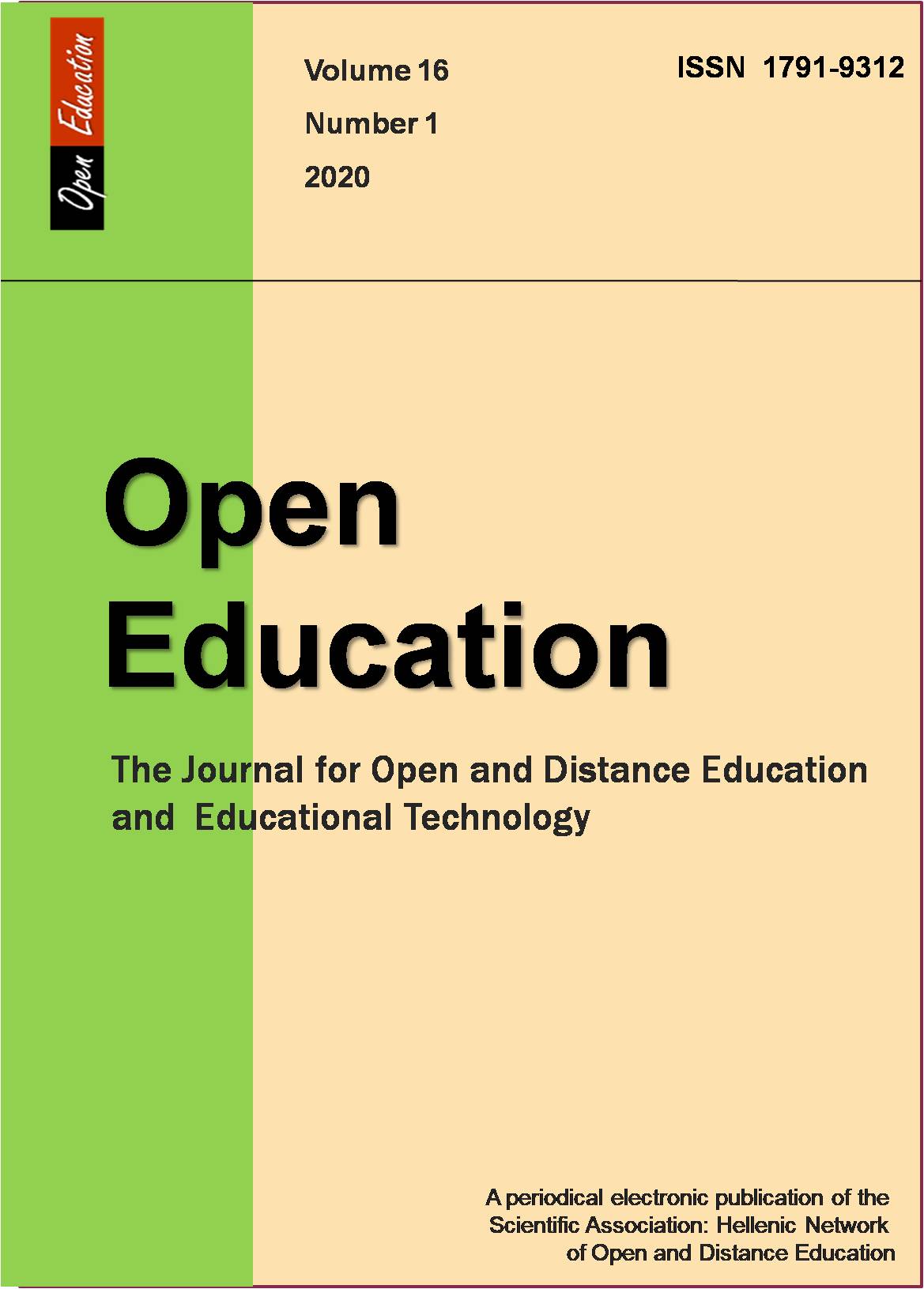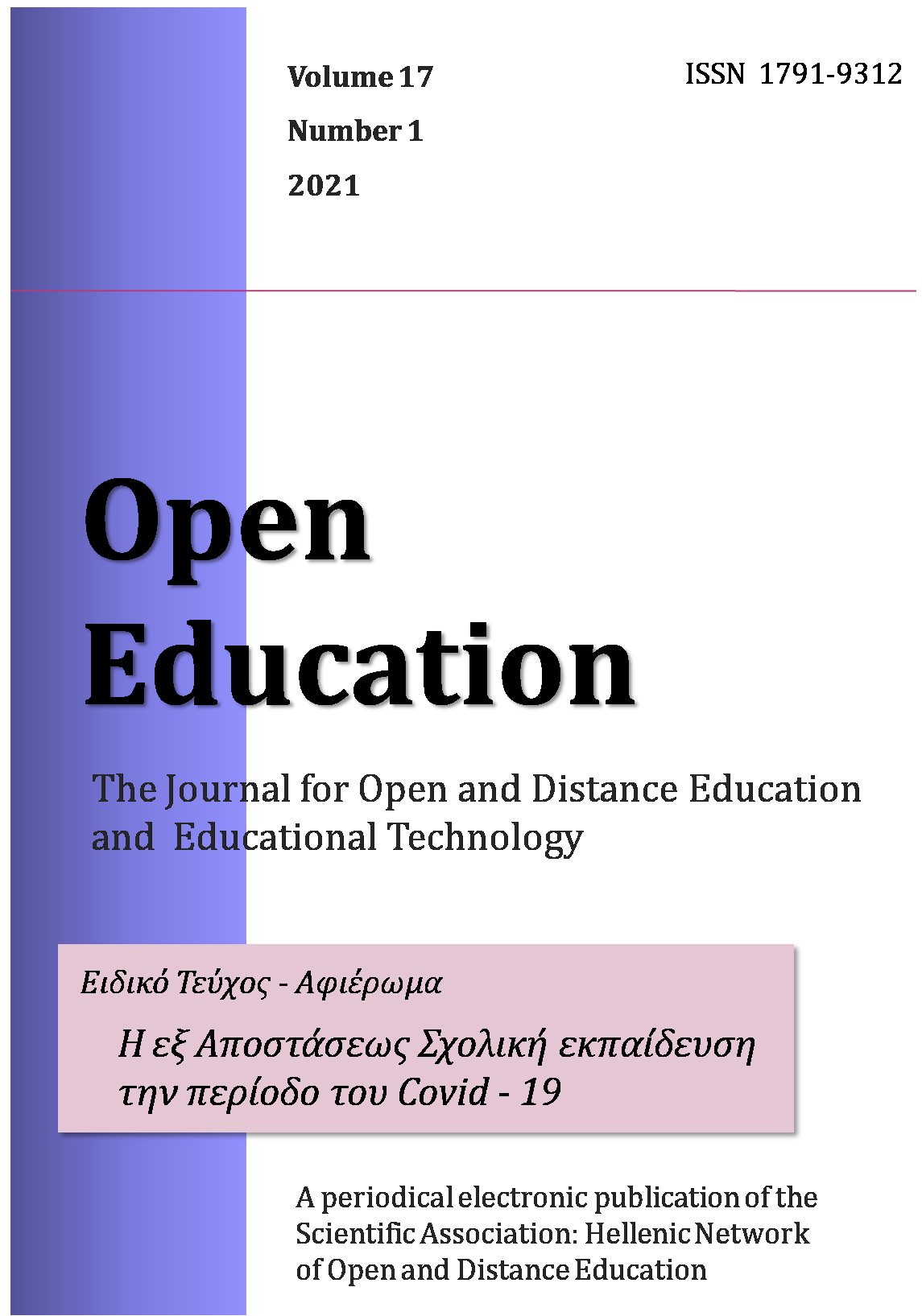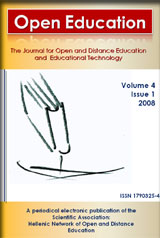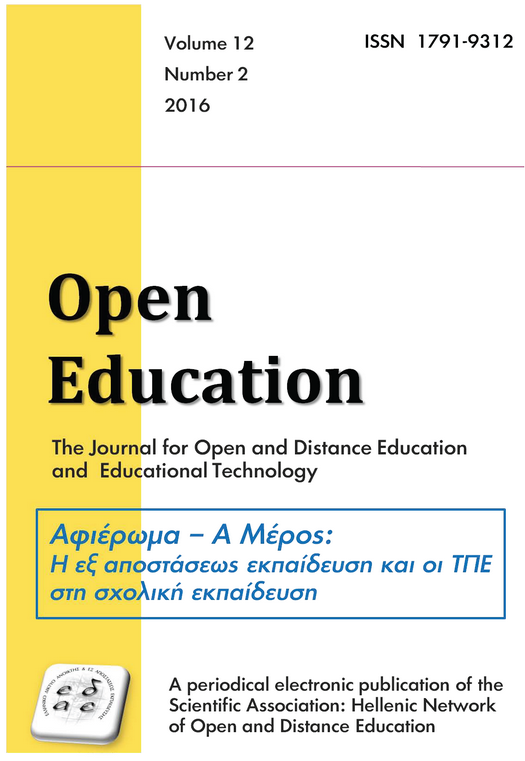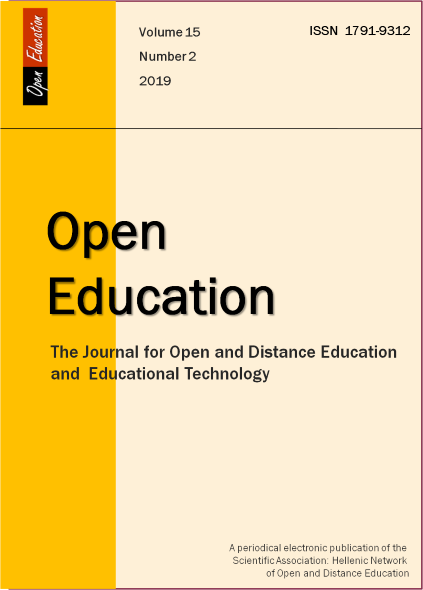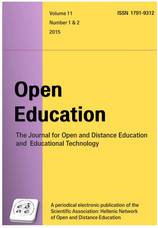Σχολική εξ αποστάσεως δευτεροβάθμια εκπαίδευση στην Ελλάδα σε συνθήκες πανδημίας Covid-19. Διερεύνηση των δυσκολιών των εκπαιδευτικών και της αξιοποίησης ΤΠΕ στην εκπαιδευτική διαδικασία
Abstract
Η παρούσα εργασία διερευνά τις δυσκολίες των εκπαιδευτικών και την εφαρμογή Τεχνολογιών Πληροφορίας και Επικοινωνιών (ΤΠΕ) κατά την περίοδο της πανδημίας Covid-19. Οι πρωτόγνωρες συνθήκες που αντιμετώπισαν οι εκπαιδευτικοί αποτέλεσαν το έναυσμα της εργασίας που στοχεύει στην περαιτέρω εξέταση της τότε εκπαιδευτικής κατάστασης, με βασικές μεταβλητές την ικανοποίηση από την Εξ Αποστάσεως Εκπαίδευση (ΕξΑΕ), τις αντιλήψεις σε σχέση με την ΕξΑΕ και τις δυσκολίες που αντιμετώπισαν οι εκπαιδευτικοί κατά την εφαρμογή της. Στη μελέτη εξετάζονται όλες οι βασικές μεταβλητές σχετιζόμενες με ποικιλόμορφα δημογραφικά στοιχεία, καθώς στο σημείο αυτό διαπιστώθηκε ερευνητικό κενό όσον αφορά την Ελλάδα. Από τα ευρήματα φάνηκε ότι υπάρχει αρνητική σχέση ανάμεσα στην ικανοποίηση από την ΕξΑΕ και τις δυσκολίες που αυτή παρουσιάζει στους εκπαιδευτικούς, αλλά δεν υπάρχει αρνητική σχέση ανάμεσα στις αντιλήψεις για την ΕξΑΕ και τις δυσκολίες που παρουσιάζει. Επιπλέον, φάνηκε ότι υπάρχει θετική σχέση ανάμεσα στην ικανοποίηση για την ΕξΑΕ και τις αντιλήψεις των εκπαιδευτικών γι’ αυτή. Δεν διαπιστώθηκαν διαφοροποιήσεις φύλου σχετικά με την ικανοποίηση που λαμβάνουν οι εκπαιδευτικοί από την ΕξΑΕ και στις αντιλήψεις που διαθέτουν γι’ αυτή, αλλά υπάρχουν διαφοροποιήσεις φύλου στις δυσκολίες που παρουσιάζονται από την ΕξΑΕ. Ακόμα, διαπιστώθηκε ότι δεν υπάρχουν διαφορές ηλικίας, οικογενειακής κατάστασης, ύπαρξης παιδιών και ετών εργασιακής εμπειρίας στην ικανοποίηση που οι εκπαιδευτικοί λαμβάνουν από την ΕξΑΕ και στις αντιλήψεις τους γι’ αυτή. Παρατηρήθηκαν, όμως, διαφορές στις δυσκολίες που τους παρουσιάζονται από την ΕξΑΕ ανάλογα με τον τόπο διαμονής. Επίσης, εντοπίστηκαν διαφορές στην ικανοποίηση που λαμβάνουν οι εκπαιδευτικοί από την ΕξΑΕ και στις αντιλήψεις τους γι’ αυτή ανάλογα με το επίπεδο σπουδών, αλλά δεν εντοπίστηκαν διαφορές όσον αφορά τις δυσκολίες. Τέλος, υπήρξε διαφοροποίηση στην ικανοποίηση των εκπαιδευτικών για την ΕξΑΕ ανάλογα με το αν διέθεταν ή όχι προηγούμενη εμπειρία στην εφαρμογή της.
Article Details
- Zitationsvorschlag
-
- Rubrik
- Άρθρα

Dieses Werk steht unter der Lizenz Creative Commons Namensnennung - Nicht-kommerziell - Weitergabe unter gleichen Bedingungen 4.0 International. Οι συγγραφείς των άρθρων που δημοσιεύονται στο περιοδικό διατηρούν τα δικαιώματα πνευματικής ιδιοκτησίας επί των άρθρων τους, δίνοντας στο περιοδικό το δικαίωμα της πρώτης δημοσίευσης. Άρθρα που δημοσιεύονται στο περιοδικό διατίθενται με άδεια Creative Commons 4.0 και σύμφωνα με την άδεια μπορούν να χρησιμοποιούνται ελεύθερα, με αναφορά στο/στη συγγραφέα και στην πρώτη δημοσίευση για μη κερδοσκοπικούς σκοπούς και με δικαίωμα τροποποίησης μόνον με παρόμοια διανομή (αν αναμείξετε, τροποποιήσετε, ή δημιουργήσετε πάνω στο υλικό, πρέπει να διανείμετε τις δικές σας συνεισφορές υπό την ίδια άδεια όπως και το πρωτότυπο).

